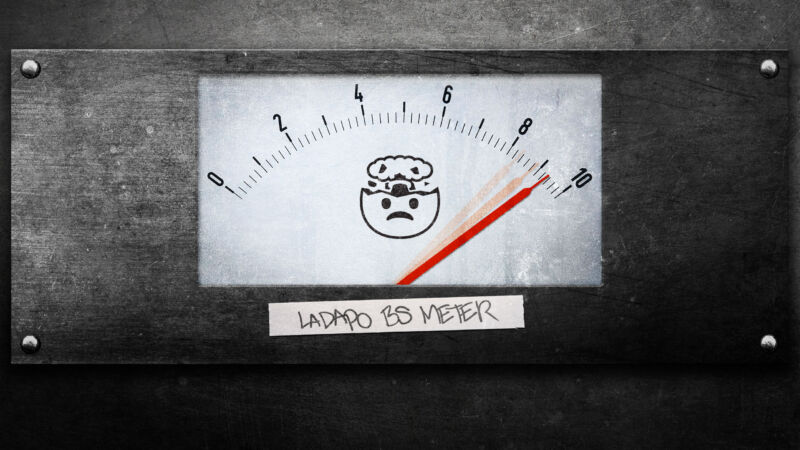
The world has been flooded with misinformation. Falsehoods and conspiracy theories bubble up on everything from the weather to vaccines to the shape of the Earth. Purveyors of this garbage may be motivated by attention, money, or simply the appeal of sticking it to the educated elite. For people who try to keep both feet planted in the real world, it’s enough to make you want to scream. Even if you spend 24 hours a day pushing back against the wrongness on the Internet, it seems impossible to make a dent in it.
I’ve been pondering this, and I’ve decided that we need a way to target the worst sources of misinformation—a way to identify the people who are both the most wrong and the most dangerous. So, as a bit of a thought experiment, I started playing with a simplified scoring system for misinformation merchants.
I’m calling it the 10-point Ladapo scale in honor of the surgeon general of Florida, for reasons I hope are obvious. Any person can be given a score of zero or one (fractions are discouraged) for each of the following questions; scores are then totaled to provide a composite picture of just how bad any source is. To help you understand how to use it, we’ll go through the questions and provide a sense of how each should be scored. We’ll then apply the Ladapo scale to a couple of real-world examples.
Is the person spreading misinformation where anyone will see it? A zero score here, representing a completely harmless individual, might be the person who keeps ranting to bots in an IRC channel that the last human left in 2012. Anybody who gives a press conference that the national media attends earns a one, as do people who find their place as talking heads or on the op-ed pages of The New York Times.
Does anyone care about the topic of the misinformation? If your conspiracy du jour somehow links the color of orange used on traffic cones to the sale of balsa wood model aircraft, congratulations, you pose no threat and rate a zero. If it involves who won the presidential election, you’re looking at a one here.
Is the subject easy to understand? Misunderstanding quantum chromodynamics, a subject many physicists fear, is not at all surprising. Getting things wrong about evolution, which is simple enough that textbooks explain its basics to pre-teens, is far less excusable and would thus get a one.
Is accurate information easy to find? Self-correction is only a possibility if the correct information is available. One can kind of understand holding false beliefs about a top-secret military technology. But when any search engine will pull up a dozen accurate FAQs on the topic you’re misinforming people about, you have earned your one.
Just how badly wrong is the argument? It continues to astonish me that there are people who apparently believe the greenhouse effect doesn’t exist. That level of detachment from reality should set the high end of the scale for wrongness. To get a zero (which is good here!), I’d allow even being mostly right but wrong about some details.
Is the misinformer promoting fake experts? Nobody can be an expert in everything, so we all find ourselves deferring to the expertise of others on some complicated topics. That makes assessing a source’s credibility critical. Unless you can tell an expert from a crackpot, you’re likely to find yourself relying on a climate “expert” who can’t reason scientifically. Like one who thinks dowsing works or one who happens to be a creationist or a former coal lobbyist. If so, you’ll have earned a point for relying on unreliable expertise—and increasing the reach of other serial misinformers.
Will people be harmed by the confusion created? If it turns out we’re living in a false quantum vacuum, everyone will die when the Universe finds a new ground state, and there would be nothing anyone could do about it. Misinforming people about the topic would have no influence on their ultimate fate, so you could lie to your heart’s content here and still earn a zero. That is very much not the case when it comes to issues like climate change or the pandemic. Putting people in danger earns you a one.
Should the individual know better? Anyone who is actually in the field they’re misinforming about, like Ladapo himself, obviously earns a one. But high scores also go to people who could easily access better information. It’s safe to say that every op-ed columnist at a major newspaper could easily call up scientists or other experts and have complicated topics explained to them. If someone refused to talk to experts because their feelings were hurt by people telling them they’re wrong, well, their score of one is probably best presented by a middle finger. Only the person who would struggle to access quality information truly earns their zero.
https://arstechnica.com/?p=1970465

